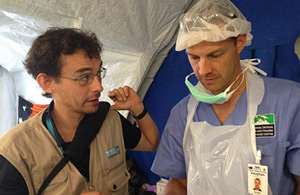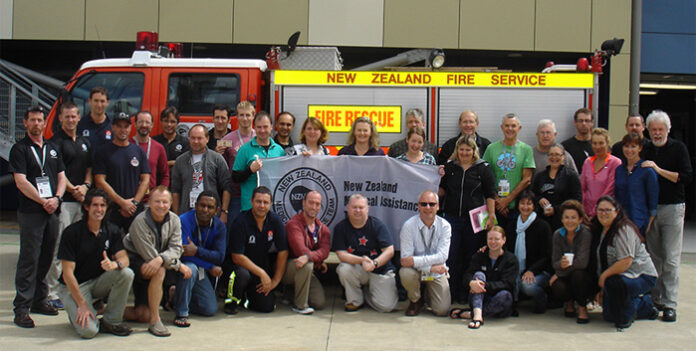The New Zealand Medical Assistance Team (NZMAT) – which can be deployed overseas to support local health services in a major emergency – is being internationally commended for its excellence in health care provision.
NZMAT successfully renewed its accreditation last November as a World Health Organization (WHO) certified unit, and the WHO has now provided feedback on its performance. The WHO said NZMAT has demonstrated its capability to deliver quality assured health services, some of which were beyond the required standards for team of that category.
“Being accredited by the World Health Organisation is important for our credibility. Think of it like a Warrant of Fitness for your car. This is a stamp of approval to confirm that other countries can continue to rely on New Zealand to provide a high standard of support to them during an emergency,” said the Ministry of Health’s Director of Emergency Management, Jason Jones.
“Even though we received confirmation in November that we had met the minimum standards, it’s great to now also be recognised for the incredible work the team does to go above and beyond.”

NZMAT has a fixed camp facility which can treat up to 100 patients at a time, and smaller mobile teams which can access remote areas and treat 50 patients at a time. Both capabilities first received accreditation in 2017, and at the time, New Zealand was only the second country in the world to have a WHO accredited Emergency Medical Team
“Renewing our accreditation was about more than a simple pass or fail test for us. We wanted to demonstrate that we could not only meet the minimum standards, but we had also continuously improved our processes since we were first accredited in 2017,” said Mr Jones.
Established in 2009, NZMAT is a New Zealand Government-led, civilian-based deployable emergency medical team comprising of doctors, nurses, logisticians, and allied health staff such as pharmacists, physiotherapists, public health staff and paramedics.
NZMAT has previously responded to offshore events, such as the Samoa measles outbreak in 2019, and to the Cook Islands and Fiji during the Covid-19 outbreak, as well as natural disasters in the Pacific.
“You learn something new every time you’re deployed, and combining that with the feedback from the WHO, we’re now in a good place to be able to pass learnings on to other countries,” said Mr Jones.



